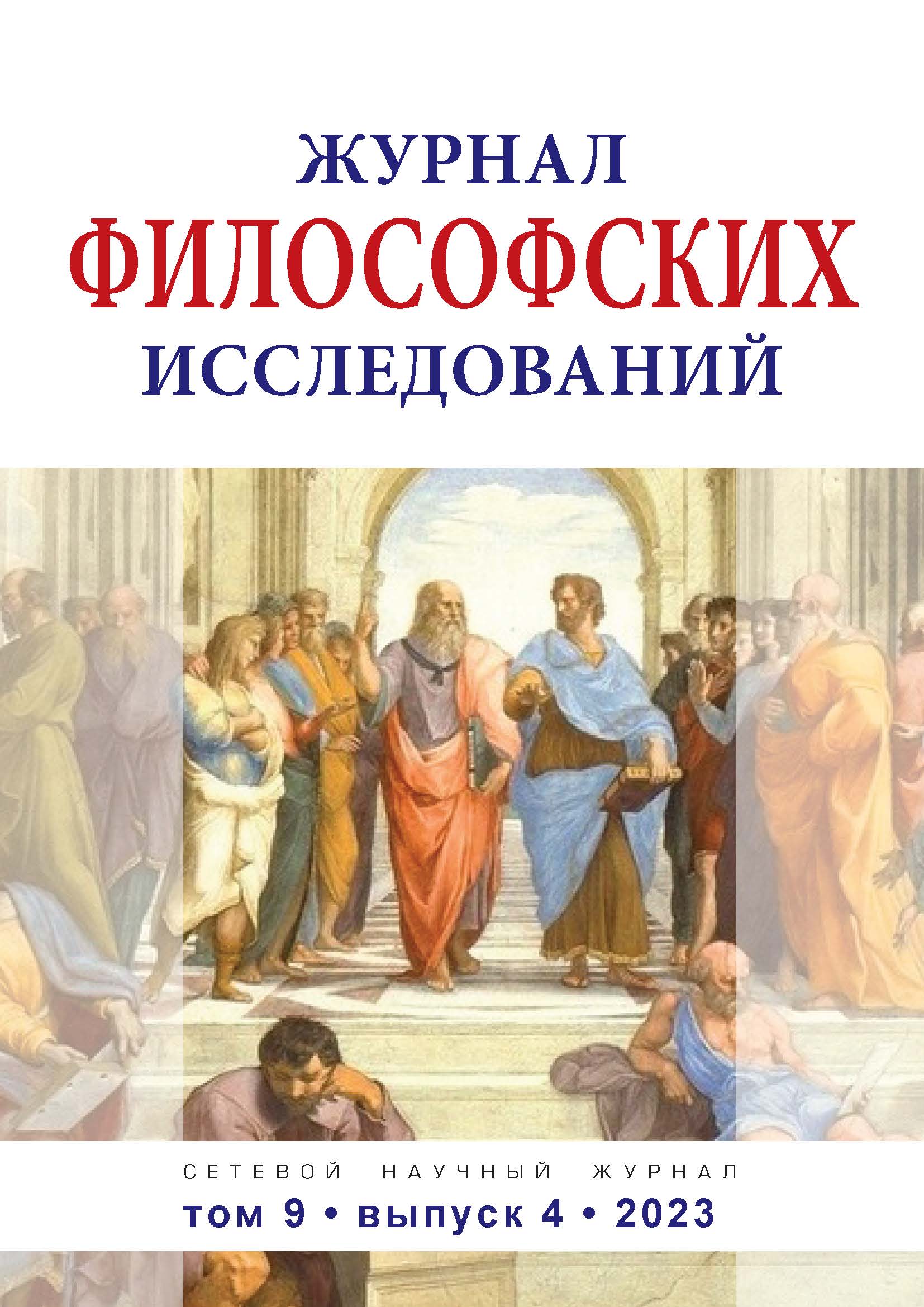Bauman Moscow State Technical University (professor)
Moscow, Russian Federation
Russian Federation
The ontology of science is a branch of the philosophy of science, the purpose of which is to study the content of general scientific and private scientific pictures of the world, the general ideas of science about objective reality, its structure, the nature of laws, the universal properties of objective reality, their content, mutual relation to each other and to reality as a whole. Philosophical ontology as a general doctrine of being, due to the specifics of its subject, is always a priori knowledge in relation to scientific ontology, which is only one of the foundations of the philosophical doctrine of being. Therefore, scientists who create the foundations of scientific ontology are always forced to turn to philosophical ontology, drawing from it the general ideas necessary for scientific ontology and grafting them to the science of their time. At the same time , it is necessary to distinguish three types of scientific ontology: 1) the ontology of a particular science (arithmetic, geometry, mechanics, thermodynamics, molecular biology, macroeconomics, psychology, etc.); 2) the ontology of a particular field of reality (Universe, nature, society, man, technosphere) is a private scientific picture of the world; the ontology of all objective reality is a general scientific picture of the world. Often the role of the general scientific picture of the world is performed by one of the private scientific pictures of the world, which is dominant in the science of a particular era. For example, for all classical natural science, this was the physical picture of the world, which was based on Newton's mechanics. In non-classical natural science, the status of the general scientific picture of the world was still claimed by the physical picture of the world, but no longer the one that was not the basis of classical mechanics, but the one that formed the ontology of relativity theory and quantum mechanics. As a rule, successive scientific ontologies, regardless of the degree of their generality, contradict each other (for example, the ontology of ancient and medieval science, the ontology of medieval science and the ontology of classical natural science, the ontology of classical mathematics and the ontology of constructive mathematics, etc.). The presence of competing fundamental theories in physics and the resulting pictures of the world, significantly undermined the confidence of representatives of other sciences in the physical picture of the world as a general scientific one. Gradually, the idea of the need to create a general scientific picture of the world as a synthesis of pictures of the world of various fundamental sciences became more and more established. For non-classical natural science, such a general scientific picture of the world was, ultimately, the synthesis of physical, biological and system-theoretic pictures of the world. Modern post-non-classical natural science tries to supplement this synthesis with ideas of expediency and reasonableness of everything that exists. According to the degree of its generality, the modern general scientific picture of the world is getting closer to philosophical ontology.
ontology, ontology of science, scientific picture of the world
1. Lebedev S.A. Filosofiya nauki: Slovar' osnovnyh terminov. - M.: Akademicheskiy Proekt, 2004. - 320 s.
2. Lebedev S.A. Sovremennaya filosofiya nauki: kurs lekciy. Uchebnoe posobie. M.: Prospekt. 2020. - s.
3. Lebedev S.A. Ontologiya nauki// Novoe v psihologo-pedagogicheskih issledovaniyah. 2010, №3.
4. Stepin V.S. Istoriya i filosofiya nauki. M.: Akademicheskiy proekt. 2011.
5. Filosofiya nauki / pod red. S.A. Lebedeva: Uchebnoe posobie dlya vuzov. M.: Akademicheskiy Proekt. 2004. - 731 s.
6. Lebedev S. A. Metodologicheskiy plyuralizm sovremennoy nauki // Vestnik Moskovskogo gosudarstvennogo oblastnogo universiteta. Seriya: Filosofskie nauki. 2021. № 3. S. 63-76.






